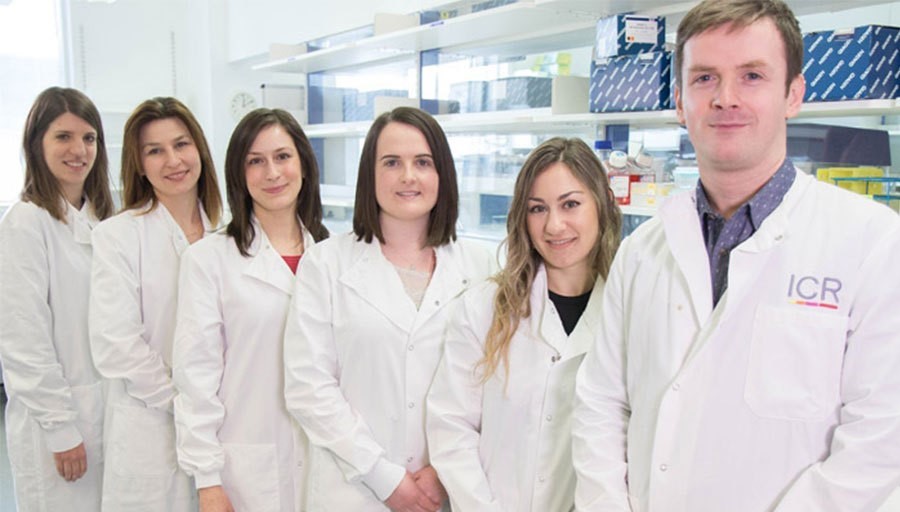We’ve worked hard to press play on breast cancer research this year, making sure vital breakthroughs don’t stop.
Now 2020’s coming to an end, we wanted to take a moment to look back on what’s been a truly unexpected year. We’ve worked hard to press play on our breast cancer research, making sure vital breakthroughs don’t stop.
And behind every single of these achievements has been one constant thing: supporters like you.

Weight gain linked to a lower risk of breast cancer before the menopause
Findings from the Breast Cancer Now Generations Study have linked weight gain from early adulthood up to 40s or 50s to a lower risk of breast cancer before the menopause.
More research is needed to fully understand why weight gain can have this effect. Scientists hope that this research could lead to new preventive treatments or better tests to identify people who may benefit most from more frequent breast screening or risk-reducing steps.
The researchers also highlight that women shouldn’t consider gaining weight as a way to prevent breast cancer. Putting on weight throughout adulthood increases the risk of breast cancer after the menopause when breast cancer is most likely to develop, and higher weight also increases the risk of other cancers and other health conditions.
Read more about this discovery.
Researchers help to ensure the best treatment during the pandemic
In June, leading researchers from the UK, Germany and US, including researchers funded by Breast Cancer Now, proposed a new method to assess which women diagnosed with oestrogen receptor (ER) positive breast cancer during the COVID-19 pandemic need urgent surgery or chemotherapy.
Led by Professor Mitch Dowsett, the study’s results could also have a role in selecting the most suitable treatment for women with early postmenopausal ER positive breast cancer after the COVID-19 pandemic. However, further testing would be needed before it becomes common practice.
The immune system could be trained to spot some drug resistant cancers
Professor Chris Lord and his team found evidence that cancers that have become resistant to drugs by restoring the function of the BRCA1 or BRCA2 genes could be vulnerable to immunotherapy.
They discovered that the repaired versions of these genes were subtly different from the same genes in healthy cells. Their computer analysis suggested that, because of this, the body’s immune system could recognise these cancer cells.
The researchers hope this discovery could open up ways to treat these resistant cancers with immunotherapies, which take the breaks off the immune system.
You can read more about this research here.
Three new genetic changes linked to breast cancer in men
As part of the Breast Cancer Now Male Breast Cancer Study, Dr Nick Orr and his team found three new common changes in DNA that can increase a man’s chance of developing breast cancer. This research brings the total number of known common genetic changes linked to breast cancer in men to five.
Nick and his team also noted that the disease has a similar genetic basis in men and women. They hope that these findings will help to identify men who are at higher risk of breast cancer and could lead to new preventive treatments for both men and women.
Read more about these findings.
A new blood test that could track the spread of breast cancer in multiple organs
Research funded by Breast Cancer Now led to a new blood test for secondary breast cancer. The test could help track the growth of multiple tumours around the body and work out how well they are responding to treatment.
Researchers believe that the new test would be highly sensitive and relatively cheap to perform, as it doesn’t require any previous knowledge of the genetic make-up of a patient’s cancer. But further research is needed to understand who may benefit most from this test.
The blood test has been developed based on new results from the Breast Cancer Now LEGACY study. The study revealed that tracking secondary breast cancer may be more achievable than previously thought.
Read more about these findings from the LEGACY study.
To all our supporters who have helped us achieve these feats, thank you. If you'd like to know more about the work you have funded, you can visit our research page.